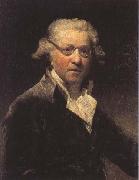
|
Peter Paul Rubens
|
|||
|
|
|||
| Flemish Baroque Era Painter, 1577-1640 Peter Paul Rubens (June 28, 1577 ?C May 30, 1640) was a prolific seventeenth-century Flemish Baroque painter, and a proponent of an exuberant Baroque style that emphasized movement, color, and sensuality. He is well-known for his Counter-Reformation altarpieces, portraits, landscapes, and history paintings of mythological and allegorical subjects. In addition to running a large studio in Antwerp which produced paintings popular with nobility and art collectors throughout Europe, Rubens was a classically-educated humanist scholar, art collector, and diplomat who was knighted by both Philip IV, king of Spain, and Charles I, king of England. Rubens was a prolific artist. His commissioned works were mostly religious subjects, "history" paintings, which included mythological subjects, and hunt scenes. He painted portraits, especially of friends, and self-portraits, and in later life painted several landscapes. Rubens designed tapestries and prints, as well as his own house. He also oversaw the ephemeral decorations of the Joyous Entry into Antwerp by the Cardinal-Infante Ferdinand in 1635. His drawings are mostly extremely forceful but not detailed; he also made great use of oil sketches as preparatory studies. He was one of the last major artists to make consistent use of wooden panels as a support medium, even for very large works, but he used canvas as well, especially when the work needed to be sent a long distance. For altarpieces he sometimes painted on slate to reduce reflection problems. His fondness of painting full-figured women gave rise to the terms 'Rubensian' or 'Rubenesque' for plus-sized women. The term 'Rubensiaans' is also commonly used in Dutch to denote such women. | |||
|
|
|||
|
Portrait of the Artist (mk25) new8/Peter Paul Rubens-962666.jpg Painting ID:: 23987 |
1622 | ||
|
|
|||
|
Sir Joshua Reynolds
|
|||
|
|
|||
| British 1723-1792 Sir Joshua Reynolds Locations Reynolds was born in Plympton, Devon, on 16 July 1723. As one of eleven children, and the son of the village school-master, Reynolds was restricted to a formal education provided by his father. He exhibited a natural curiosity and, as a boy, came under the influence of Zachariah Mudge, whose Platonistic philosophy stayed with him all his life. Showing an early interest in art, Reynolds was apprenticed in 1740 to the fashionable portrait painter Thomas Hudson, with whom he remained until 1743. From 1749 to 1752, he spent over two years in Italy, where he studied the Old Masters and acquired a taste for the "Grand Style". Unfortunately, whilst in Rome, Reynolds suffered a severe cold which left him partially deaf and, as a result, he began to carry a small ear trumpet with which he is often pictured. From 1753 until the end of his life he lived in London, his talents gaining recognition soon after his arrival in France. Reynolds worked long hours in his studio, rarely taking a holiday. He was both gregarious and keenly intellectual, with a great number of friends from London's intelligentsia, numbered amongst whom were Dr Samuel Johnson, Oliver Goldsmith, Edmund Burke, Giuseppe Baretti, Henry Thrale, David Garrick and fellow artist Angelica Kauffmann. Because of his popularity as a portrait painter, Reynolds enjoyed constant interaction with the wealthy and famous men and women of the day, and it was he who first brought together the famous figures of "The" Club. With his rival Thomas Gainsborough, Reynolds was the dominant English portraitist of 'the Age of Johnson'. It is said that in his long life he painted as many as three thousand portraits. In 1789 he lost the sight of his left eye, which finally forced him into retirement. In 1791 James Boswell dedicated his Life of Samuel Johnson to Reynolds. Reynolds died on 23 February 1792 in his house in Leicester Fields, London. He is buried in St. Paul's Cathedral. | |||
|
|
|||
|
Portrait of the Artist (mk25) new8/Sir Joshua Reynolds-758455.jpg Painting ID:: 24028 |
1788 | ||
|
|
|||
|
Also Buy::. For Following Paintings / Artists / Products, Please Use Our Search Online: |









